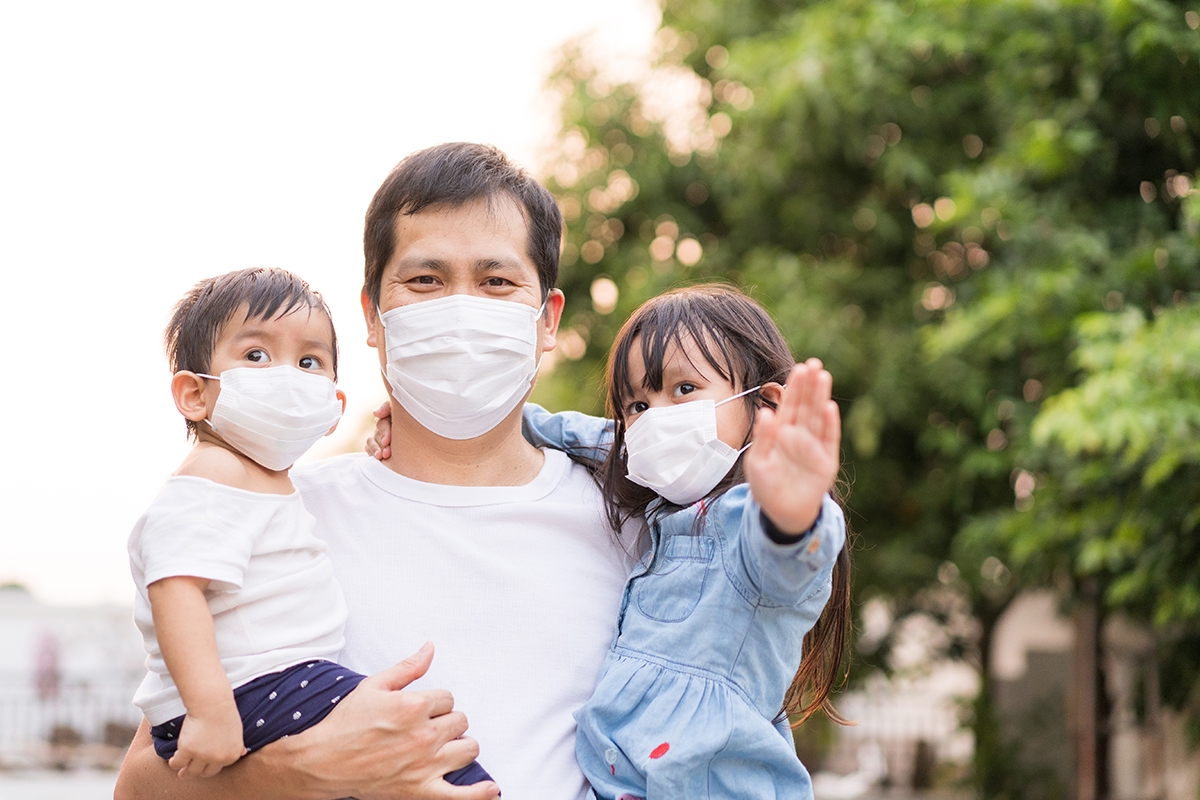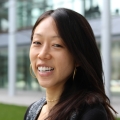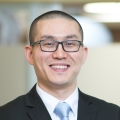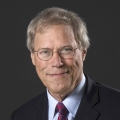[WEBCAST] Understanding the Impact of COVID-19 on Asian Americans
VIEW EVENT DETAILS
This program has taken place. Find the event recap and program video here »
Schedule
Thursday, December 10, 2020
7:30 p.m. Moderated Discussion
8:10 p.m. Audience Q&A — Questions welcome via the video chat
Live Webcast
The COVID-19 pandemic's comparatively deep impact on Asian Americans — as well as Black, Indigenous, and other communities of color — has exposed the gap between perception and reality. A new report from McKinsey & Company looks beneath the top-line numbers and further demonstrates that the Asian American community is not a monolith: Asian Americans have some of the widest variances in corporate success, educational attainment, and income.
Asian American workers disproportionately hold high-contact essential jobs that place them at greater health risk; for example, while only 4 percent of U.S. nurses are Filipino, about 30 percent of registered nurses who have died from COVID-19 are Filipino Americans. Risk of exposure is also greater, as Asian Americans are more likely to live in multigenerational homes — in 2016, 29 percent of Asian Americans lived in a home with two or more adult generations, compared to 27 percent of Hispanics, 26 percent of Black Americans, and 16 percent of white Americans. Since the pandemic, unemployment among Asian Americans has more than quadrupled to 10.7 percent, and Asian-owned businesses are overrepresented in sectors that have been hardest hit by COVID-19. Further, the pandemic has exacerbated anti-Asian xenophobia and racism, which have historically acted as barriers to equity.
Asia Society at Home
Learn More
As the country's public, private, and social sectors look toward recovery, the Asian American community will be a critical engine. The Asian American population is projected to become the largest immigrant group (38 percent of immigrants) in the United States by 2055, so raising awareness of the community and addressing inequities within the group are increasingly urgent.
Join Asia Society with the authors of the McKinsey report COVID-19 and Advancing Asian American Recovery for a conversation on the importance of gaining a greater understanding of the experiences, strengths, and challenges of Asian Americans, and how immediate action can be taken to spur their recovery and promote greater equity.
About the Speakers

Elaine Dang is an Engagement Manager based in the San Francisco office of McKinsey focused on public sector and organizational health including D&I. Prior to McKinsey, she worked at Teach For America and with startups in Kenya. Elaine holds dual degrees from the University of California, Berkeley and an MBA from the Yale School of Management. She is a first-generation American and college graduate which has driven her passion for social justice, mental health, and the AAPI community. She is a leader of Asians at McKinsey (AAM), and one of the co-authors of the recent report COVID-19 and Advancing Asian American Recovery.

Harrison Lung is a Partner for McKinsey & Company, a leading global management consulting firm, based out of New Jersey. Previously based out of McKinsey's Hong Kong office, Harrison serves clients across Asia, North America, and Europe. His passion is about helping telecommunication and high-tech clients capture the full benefits of large-scale digital transformations, using his in-depth knowledge of IT and operations to help them achieve impact at scale.
He is a core leader of Asians at McKinsey (AAM), a diversity and inclusion group within McKinsey, aimed at fostering and advancing of Asian Americans in the workplace. This group recently released a report: COVID-19 and Advancing Asian American Recovery that highlighted the significant impact that COVID-19 has had on the Asian American community. He is also on Asia Society’s Global Talent Initiative council. Harrison has also been a frequent speaker and panel moderator at leading industry events, such as Mobile World Congress (MWC) in Barcelona and his work has been cited by leading publications (ABC, CBS, Forbes etc.) Harrison is a graduate of Cornell University (U.S.), Queen’s University (Canada), and the University of Waterloo (Canada).
About the Moderator

Dr. Stephen Klineberg is Founding Director of the Kinder Institute for Urban Research and Professor Emeritus of Sociology at Rice University. He has been shaping local thought on the ongoing trends in the Houston metropolitan region for almost forty years. As the director of the annual “Kinder Houston Area Survey” (1982-2020), he has tracked the economic outlooks, demographic patterns, experiences, and beliefs of area residents during a period of remarkable change. The book exploring the national implications of the first 38 years of this research, entitled Prophetic City: Houston on the Cusp of a Changing America, was published in June 2020 by Simon & Schuster. Dr. Klineberg is the recipient of twelve major teaching awards at Rice and a much sought-after speaker in the Houston community and beyond. He is a graduate of Haverford College, with an MA from the University of Paris, and a PhD from Harvard. He and his wife Margaret have lived in Houston since the early 1970s; they have two children and five grandchildren.
Asia Society hosts today's leading voices, providing commentary on events in news, society, and culture. Opinions expressed do not necessarily reflect Asia Society views.
Asia Society Texas Center Business & Policy Programs, Endowed by
Huffington Foundation
Business and Policy programs at Asia Society Texas Center are presented by Bank of America, Muffet Blake, ConocoPhillips, ExxonMobil, and United Airlines. Major support comes from Nancy C. Allen, Chinhui Juhn and Eddie Allen, Nancy Pollok Guinee, and Mary Lawrence Porter, as well as The Brown Foundation, Inc. and Houston Endowment. Additional funding is provided by the Friends of Asia Society Texas Center, a dedicated group of individuals and organizations committed to bringing the best in public programming.
Business & Policy Presenting Sponsors

Promotional Partner

About Asia Society at Home
We are dedicated to continuing our mission of building cross-cultural understanding and uplifting human connectivity. Using digital tools, we bring you content for all ages and conversations that matter, in order to spark curiosity about Asia and to foster empathy.
About Asia Society Texas Center
With 13 locations throughout the world, Asia Society is the leading educational organization promoting mutual understanding and strengthening partnerships among the peoples, leaders, and institutions of Asia and West. Asia Society Texas Center executes the global mission with a local focus, enriching and engaging the vast diversity of Houston through innovative, relevant programs in arts and culture, business and policy, education, and community outreach.